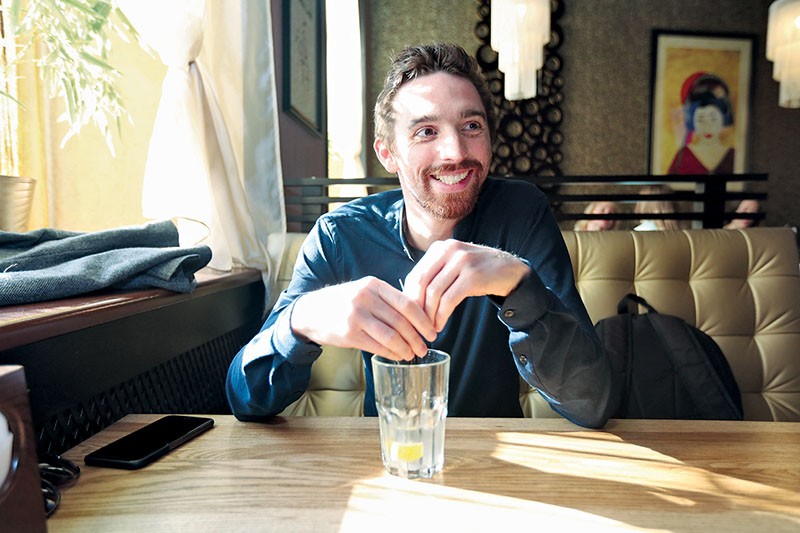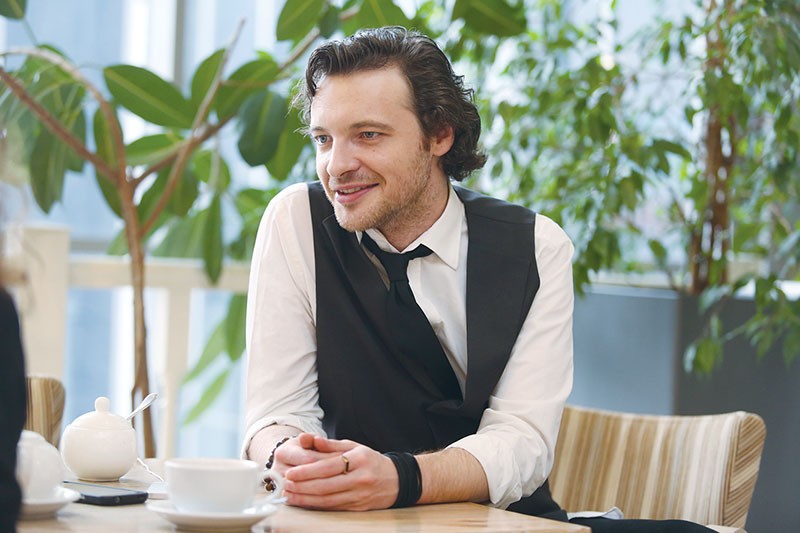Ukraine is almost France-sized and France is a bit larger than Ukraine-sized. But aside from land mass, how do the two nations compare and contrast? We asked three of the 881 registered French citizens living in Ukraine how their lives are here compared to their homeland.
Maud Chicheportiche-Joseph, editor
four years in Ukraine
Author and editor of restaurant guides Maud Chicheportiche-Joseph found out that she would be moving to Ukraine four years ago, when her husband was offered a job here. At first she thought it was a joke, and refused to pack. But her husband’s promise of good weather in Kyiv appealed her sun-loving nature and persuaded her to leave rainy Paris, she says.
Months later, Chicheportiche-Joseph realized she had never seen as much precipitation as in the capital of Ukraine. The rain came down in buckets in August and September, and it started snowing in October. She says she felt limited because it was impossible to walk and discover the city.
“It was at that point when I called my mother and said I wanted to go home,” she says.
But she got over that bad patch and is now much happier in Kyiv. Part of the reason is that she feels safer here than at home, even though it’s hard to call Ukraine peaceful.
In Paris, “if you wear a dress and go to the subway, people can touch you or even assault you,” she says.
Back in her Paris days, Chicheportiche-Joseph used to park her car 10 meters from her house and was scared even to walk that short distance.
Now Chicheportiche-Joseph is the happy mother of three kids, one of whom she had in Kyiv. While pregnant in Ukraine, she was astonished by people’s kindness and willingness to help. Strangers offered to help her carry bags, opened doors for her and gave up their seats on transport – something that never happened to her in Paris.
Chicheportiche-Joseph says she believes that life is too tough in Paris, and people spend so much time on transport that they don’t care about anything.
“Everyone just wants to be invisible,” she adds.
One thing the editor misses about Paris is its rich diversity and cultural life. She says that Ukrainian museums are old-fashioned, while art exhibitions often have problems with lighting. Another barrier is language – only a few cinemas in Kyiv screen movies in their original languages, and no theaters have performances in English or French.
But Chicheportiche-Joseph says children in Kyiv have a better cultural life than adults. Art schools are cheap here. Her girls go to piano classes and ballet. “It might have been impossible in Paris,” she adds.
In France, parents have to work long hours and have no time to support their kids’ hobbies, she says. On top of that, French art schools are expensive.
While many people long for New York, London or Tokyo, but not Kyiv, many who come to Ukraine eventually come to love living in the country,
“When you come to Ukraine, you cry, and when you leave it, you cry too – this is how most of the French community in Ukraine feels,” she says.

Sebastien Gobert, journalist
six years in Ukraine
Before Sebastien Gobert moved to Ukraine, he had lived in central European countries. When the French journalist first arrived in the capital of Ukraine, he was horrified by the Soviet architecture, the noise, and the hectic traffic. He says it took him eight months to get used to post-Soviet Kyiv, but in the six years since he moved things have changed.
Comparing France and Ukraine, the first thing that comes to mind is, of course, service. Gobert says he was used to the traditional Western European service – polite and courteous – in shops and restaurants. In Ukraine, he had pleasant interactions with shop assistants, he says. “It was as if I had to beg them to sell me something,” he says.
Apart from service, the journalist was surprised by parking in Kyiv, or to be more accurate, the lack of parking spaces.
Despite its flaws, Ukraine’s dynamism impresses Gobert.
“Ukrainians really want to become something. In Western Europe people just want to stay as they are,” he said.
Although Gobert misses French croissants and wine, and still feels like a kid in a toy store when he visits bakeries back home, he has no plans to return to France so far. He says French society is not striving to develop, which goes against his attitude to life.
“We should all hope for a better life, we should want to change the system and improve the situation,” Gobert says.

Paul Manandise, singer
two years in Ukraine
French singer Paul Manandise first came to Ukraine by bus, and was immediately struck by the differences. “We were only 20 kilometers from the border, but I had already noticed things totally different from what I saw in Europe. Weird coffee machines, for instance!”
The people are also different: Manandise says he finds it easy to speak to anybody in Ukraine because “people are very kind and more human here.” He says that in Western Europe people are less honest in conversation with each other, and tend to show off more.
“Of course, the first thing Ukrainians associate with France is the croissant,” Manandise says. He believes that Ukraine loves French culture, cinematography and it traditions. He didn’t know much about the country he was coming to, but the things he’s learned “were a nice surprise.”
Manandise’s favorite cuisine is still French. But he is fond of Ukrainian food. While on tour, he has tried traditional borsch (meat and beet soup) and salo (lard, which he calls Ukrainian foie gras) in 10 cities. The singer says the best borsch he had on tour was in Kharkiv. “Not as good as my mother-in-law’s though,” he adds.
He says food in French restaurants here is good, but misses the “special French touch.” Truly authentic French food has to be cooked at home, not in a restaurant, he says.
Manandise is happily settled in Ukraine and plans to become a citizen. It amazes him that despite the challenging situation, people encourage and support each other’s ideas.
“It feels like anything is possible in Ukraine,” he says.
